
Russia’s invasion of Ukraine has led to deep division among local musicians. While critics of the war have trouble playing shows — or are voluntarily refusing to do so — supporters of the invasion are cashing in by playing government-sponsored “patriotic” concerts.
With Europe’s largest conflict since World Word II now passing 100 days, throughout April and May, dozens of concerts have been organized across Russia by local authorities to support the Russian “military operation” in Ukraine. Artists participating in those shows were paid sizable fees by local authorities.
The folk rock band Pelageya collected 3 million rubles ($49,000) for participating in a patriotic music festival in Stavropol, South Russia, on May 1, and singer Denis Maidanov was paid 2.5 million rubles ($40,000) for taking part in the same event, according to Russia’s government procurement website, where all spendings from the central and local budgets have to be reported.
Artists’ fees for regular shows are normally not disclosed in Russia, but these figures are still believed to be higher than their regular fees.
The management of Maidanov and Pelageya did not respond to Billboard‘s request for comments.
Russian artists on the other side of the spectrum – those who have opposed the invasion – have found themselves in a totally different situation.
The rock band Nogu Svelo, fronted by the outspoken Maxim Pokrovsky, finds it impossible to play in Russia right now.
“Some of our colleagues prefer to declare readiness to provide entertainment to everyone, regardless of their views, saying they are beyond politics,” Pokrovsky tells Billboard. “I am not ready to entertain anyone who supports the extinction of a people whose blood I have in my veins, or the extinction of any people at all,” Pokrovsky says, who was out of Russia when the invasion began on Feb. 24 and has no plans to return in the near term.
Since the conflict began, Pokrovsky has released several music videos, in which he harshly criticizes Russia for attacking Ukraine and those Russians who supported the attack.
He dreads the idea that people who support what Russian authorities continue to call a “special military operation” could show up at his band’s concerts.
Now, he says he fears he could be detained if he comes to Russia to perform. The Kremlin recently adopted legislation stipulating harsh punishment of up to 15 years in prison for those who criticize the military operation in Ukraine — and Pokrovsky’s songs technically violate that law.
Yevgeny Fedorov, frontman of the bands Tequilajazzz and Optimystica Orchestra, also left Russia days after the invasion, as did many of his colleagues who opposed Russia’s attack on Ukraine.
“This is exactly a war, and it is unacceptable, totally shameful and wicked, because it is justified by far-fetched reasons and imperialist fantasies built upon myths that were born in the Soviet era and grew unbelievably strong thanks to Russian official propaganda’s continuous efforts in the last 20 years,” Fedorov tells Billboard.
“Hundreds of artists were forced to leave Russia, as any outspoken comment could lead to a lengthy prison term, harassment from pro-Putin activists and even physical attacks,” he says.
Among the first Russian artists to speak out was Miron Fyodorov, the rapper known as Oxxxymiron, who canceled his first Russia headlining tour in five years, and then played three shows in April under the slogan “RUSSIANS AGAINST WAR” in Istanbul, London and Berlin, respectively, collecting $195,000 that was donated to Ukrainians. He’s now on hiatus and his website provides no further tour dates, only saying “NO TO WAR.”
More recently, the veteran rock band DDT, whose frontman Yuri Shevchuk has opposed the war, has canceled several shows — in Chelyabinsk and Magnitogorsk and, this week, a stadium show in Moscow scheduled for June 10.
“The Band DDT takes a strong anti-war stance,” the band said in a statement published on its website. “Because of that, organizers were unable to obtain permission to run the show from the Moscow government.”
The band refused to play at venues adorned with the letter ‘Z,’ which has come to symbolize support for the invasion.
Shevchuk himself is facing civil charges for anti-war comments he made at a recent show in Ufa. The charges were brought by local authorities and the case is still pending. Shevchuk has not denied making the comments.
As the war in Ukraine entered its fourth month, the division between musicians supporting and opposing the invasion remains acute. At the same time, a third pool of artists have avoided taking sides in the conflict out of fear of losing either their earning opportunities or their fans’ support.
“Some people keep silent, doing it for various reasons,” Pokrovsky says. “Some are really in danger, are barely surviving but still making statements [about the situation], walking on the brink of an abyss. Still, others are sitting tight in a hole full of food, money and awards, hoping to sit out the difficult times.”
[flexi-common-toolbar] [flexi-form class=”flexi_form_style” title=”Submit to Flexi” name=”my_form” ajax=”true”][flexi-form-tag type=”post_title” class=”fl-input” title=”Title” value=”” required=”true”][flexi-form-tag type=”category” title=”Select category”][flexi-form-tag type=”tag” title=”Insert tag”][flexi-form-tag type=”article” class=”fl-textarea” title=”Description” ][flexi-form-tag type=”file” title=”Select file” required=”true”][flexi-form-tag type=”submit” name=”submit” value=”Submit Now”] [/flexi-form]

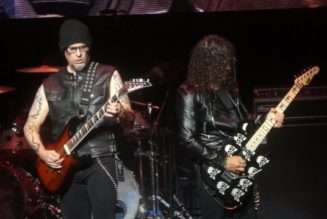
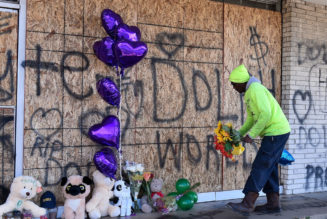
![Neil Young on Spotify: “Why Would I Keep [Music] on There When It Sounds Like a Pixilated Movie?”](https://www.wazupnaija.com/wp-content/uploads/2022/11/neil-young-on-spotify-why-would-i-keep-music-on-there-when-it-sounds-like-a-pixilated-movie-327x219.jpg)
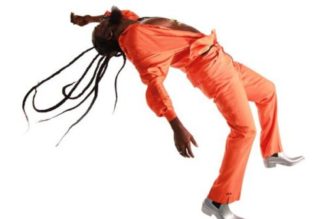

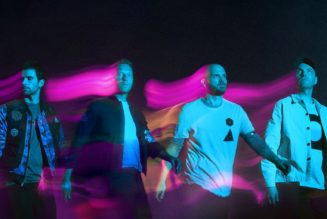

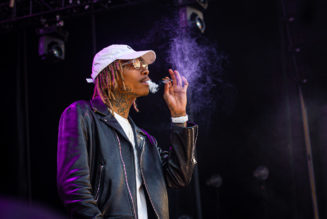
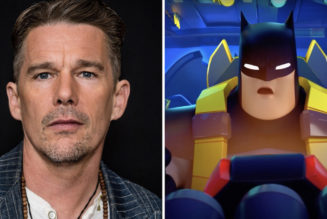
Tagged: business, entertainment blog, International, music blog, Russia Ukraine Conflict, Touring